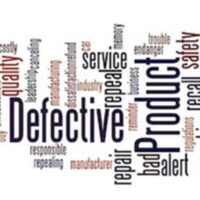Should Amazon Be Liable for Products Sold in Their Marketplace?

Amazon was recently sued over products they neither manufactured nor endorsed but made available on their website. Amazon argued that since they are a “marketplace” and not a retailer, they shouldn’t be held to the strict liability rule of most product liability lawsuits. Strict liability means that the plaintiff in a lawsuit does not need to prove negligence. They only need to show that in the typical use of their product, they suffered some form of injury.
The verdict against Amazon sent shockwaves across the industry. Amazon appealed the verdict asking a federal court in California to determine if the verdict corresponds with the spirit of the law. No decision has been rendered on the appeal.
When Can You Sue Amazon?
That’s the question. Let’s look at one of the lawsuits filed against Amazon. The lawsuit involved hoverboards that were defectively manufactured and would burst into flames sporadically. Even though several people filed complaints against the company that produced the hoverboard, Amazon still made it available on their webpage. One lawsuit was filed against Amazon, and the plaintiff won. Now Amazon is attempting to get the verdict tossed or, as a consolation prize, for all online marketplaces to abide by the same standard.
But the fundamental question at play is whether strict liability should apply to Amazon if they make defective products available to their customers. Amazon believes that the legislation would have severe unintended consequences for the entire industry. If Amazon can be held liable under the law, can Craigslist? Etsy?
The Lawsuit
The initial lawsuit involved a laptop battery that was sold via Amazon’s marketplace. After the battery injured the plaintiff, Amazon argued that it neither manufactured, distributed, or sold the product despite shipping the product from their warehouses. However, the judge who presided over the first lawsuit stated that Amazon placed itself in between the customer and the manufacturer in the chain of commerce and controlled the conditions of the transaction. For that reason, Amazon was considered closer to a retailer than they were to the classifieds.
Among the concerns raised by Amazon is the role online marketplaces play in cheaply connecting manufacturers to customers. If Amazon ends up taking on liability for defective third-party products, it may cause prices to spike or make the industry unsustainable.
Was There Negligence?
In at least some of the successful product liability lawsuits against Amazon, negligence was a factor. If Amazon kept getting reports on a dangerous and defective product that they continued to allow to be distributed in their marketplace, then they facilitated the harm caused to customers. However, the legal question is: Does Amazon have a legal burden to ensure the products distributed on their site are safe? As an example, would a flea market take liability for an item sold by one of its vendors?
Talk to a Tampa Product Liability Attorney
If you’ve been injured by a dangerous or defective product, call the Tampa personal injury attorneys at The Matassini Law Firm today to schedule a free consultation and learn more about how we can help.
Resource:
geekwire.com/2020/amazon-appeals-product-liability-ruling-ca-supreme-court-citing-potentially-vast-blast-radius/
https://www.matassinilaw.com/plumber-injured-in-gas-tank-explosion-sues-tampa-electric/
